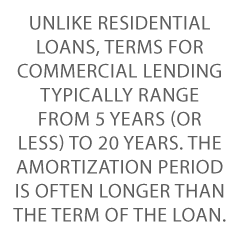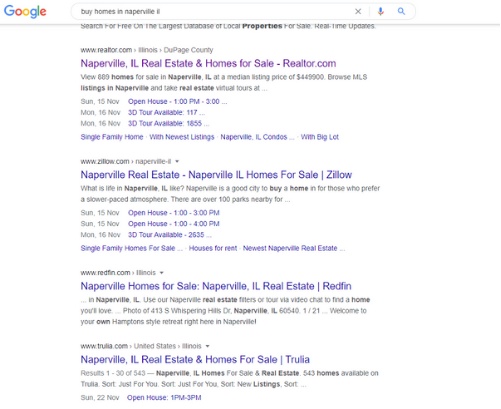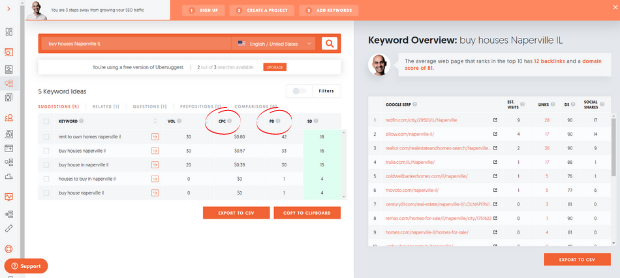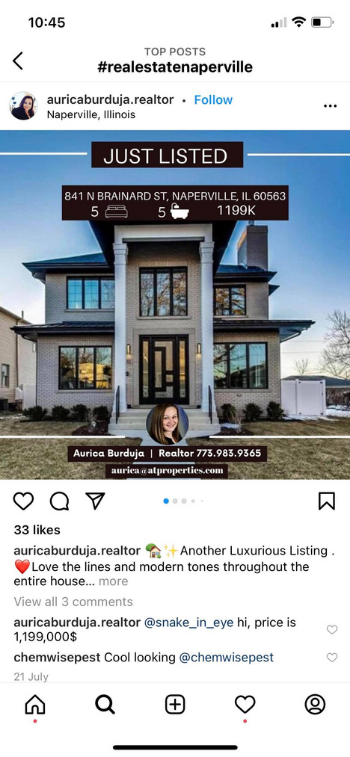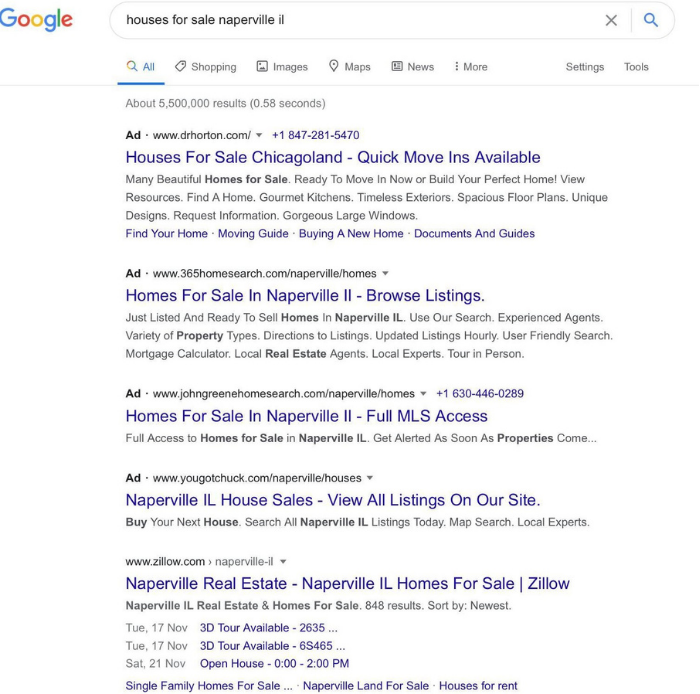
10 Tips for Creating Real Estate Video Ads
Did you know that 73 percent of sellers prefer working with agencies that use real estate video marketing? Whether it’s a walkthrough of the property or a Q&A session, sellers expect their agents to use video marketing to reach the right buyers and sell their properties.
For real estate agents, this demand presents a few challenges. How do you make an engaging real estate video to impress both sellers and buyers alike, and how do you track a video’s performance for your marketing purposes?
Luckily it is not as hard as it might seem. Although real estate videos serve a unique purpose, they’re similar to regular marketing videos in many ways, so don’t be intimidated by them.
Let’s take a closer look at why real estate videos are worth the effort and how you fit them into your overall video marketing strategy.
Why Should You Create Real Estate Video Ads?
Real estate videos do two things: they attract buyers to your listing, and they encourage prospective sellers to choose your agency over your competitors.
Are they worth the effort, though, when you could create social media ads or optimize your listings? Maybe with the current market, you think it will be a waste of resources. Let’s look at what the numbers say.
- 46 percent of buyers think video tours are the most influential content on an agency’s website.
- Listings with embedded videos are 53 times more likely to rank highly on Google than listings without embedded video.
- Real estate videos attract up to 403 percent more traffic than other content.
- You’ll earn around 60 percent more qualified leads through real estate videos.
- A caring personality is one of the top reasons sellers choose a particular agent or agency, and that’s easier to share in a video than, say, a picture or article.
What’s more, 84 percent of video marketers feel they’ve generated more leads thanks to video marketing, and 94 percent of us use videos to learn more about the products we’re buying.
The takeaway? To draw traffic to your listings and impress your sellers, try out real estate video marketing.
Before we dig into strategies, let’s cover the basics.
What Equipment Do You Need to Create Real Estate Video Ads?
There’s no need to spend a fortune on top-of-the-range lighting, props, or cameras. However, you’ll still need some recording equipment before you shoot your first real estate video. How much you spend depends on your marketing budget, but let’s break down the basics.
First, you’ll need a camera capable of shooting in 4K or HD to make sure the videos are high quality and not blurry or pixelated. A smartphone works, too.
If you opt for a camera, make sure it’s capable of capturing both high-quality video and images. Practice shooting with the camera before filming day to ensure you get the most from the equipment.
Using a smartphone? Clip on a wide-angle camera lens. This allows you to shoot larger scenes while minimizing glare and improving image quality. Here’s what the lens looks like:
Lenses like this one shown above are cost-effective and widely available, so shop around.
Want to go all-out? You can always buy a drone for 360 aerial footage. However, you’ll probably need a permit to fly a drone in most areas, so keep that in mind.
Next, you’ll need lighting filters. Use a neutral density filter for shooting outside, and get a pocket-sized LED light you can attach to the camera (or smartphone) for filming in poorly-lit areas.
Got the lighting sorted? Now you’ll need a microphone. You can either buy a mic attachment for your smartphone, or a portable mic for attaching to any camera device.
You’ll also need editing software. Check out tools like Adobe Premiere Pro and Final Cut Pro X for professional editing support. You’ll likely pay for a subscription, but they’re easy enough to master, and you’ll produce the sharpest, most professional videos this way. Alternatively, you could outsource editing to a freelancer.
Finally, you’ll probably need a stabilizer like a selfie stick or a gimbal. These tools keep your camera steady and minimize shaking while you walk around a property.
10 Tips for Successful Real Estate Video Ads
A real estate video is all about setting a great first impression. You want to bring the property to life, connect with potential buyers, and ultimately set yourself apart from other realtors with your professional marketing skills.
To help ensure your content achieves these goals, here are ten tips to produce the highest-quality real estate video ads.
1. Know Your Real Estate Video Ad Budget
Be clear about what you can afford to spend on video marketing. Unsure how to allocate your budget? Let me give you a few pointers.
First, consider your target audience. It’s worth watching real estate videos in your listing’s price range to see how your efforts compare to your competitors’ video ads.
Next, think about how much you’ll spend on actually promoting your videos. From social media ads to targeted email marketing, the costs can eventually add up. To keep things more cost-effective, repurpose your real estate videos into digital ads so you can double your content output without spending more.
Also, take the time to research paid ad strategies, or hire a digital marketing consultant to take care of the budget, targeting, and testing.
2. Plan Your Angle in Advance
A great real estate video doesn’t just happen. It takes planning. Remember, you’re trying to tell a story, so you need to spend time thinking about what story you want to tell.
For example, determine what equipment you’ll need, whether you’ll hire actors to play any roles, and what time of day or night you plan on filming. Do you want to sell your own real estate skills or help a buyer fall in love with an unusual property?
Depending on the seller, you might also need their approval before you start filming or sending the video out to prospects, so factor in time for adjusting your angle and making changes as required.
3. Keep Your Real Estate Video Ad Short and Sweet
The length of your real estate video depends on where you’re marketing it. For example, according to HubSpot, popular Twitter videos average around 43 seconds, while popular YouTube videos run a little longer at two minutes.
A real estate video can be as long as six minutes, but it’s not always wise to fill this time. Why? People have short attention spans. Don’t risk losing a potential buyer’s attention just because you’ve added 30 or 40 seconds of filler to your video.
For example, here’s a video for a property listed by Douglas Elliman. It’s just over 90 seconds long, but it’s visually engaging and covers every angle a potential buyer needs to see without extra fluff:
4. Script the Video
Great real estate videos typically follow a three-act story structure, according to research by Vimeo.
- Act one: Give a clear, frontal view of the property and a few clips of the neighborhood.
- Act two: This part focuses on showcasing each room. Start with the main feature rooms before moving on to the smaller rooms.
- Act three: End the video ad with an exterior view of the property. If you’re using drone footage, place it here.
Remember, you’re telling a story, so following a traditional story structure works!
5. Provide an Engaging House Tour
If you want to ensure a prospect watches your video the whole way through, keep it engaging. Be enthusiastic. Show people why you’re excited about the property, and inspire potential buyers to envision themselves living in the property.
Focus on the possibilities. What could make this property truly special for the right buyer? How might the property be flexible over time? For example, a first-floor bedroom can be an office now and a bedroom for an aging parent or partner later. A basement can be a game room, an in-law suite, or an at-home gym. Drive home how the property can meet their needs over time.
6. Focus on Special or Unique Features
No matter the price range, every property boasts a special, unique, or at least intriguing feature.
Maybe there’s cool history attached to the building, or there’s a custom marble countertop in the kitchen. Or, maybe it’s just the first house to come to market in the area for a long time.
To identify unique features, ask the buyer what changes they’ve made since they bought the house, and if it’s an older property, identify if they kept any key features like original wooden flooring.
Special features can be anything from dual sinks to fully-landscaped gardens, so look for those little quirks that make the property unique compared to similar properties.
For example, this property in Montecito has a wine rack:

Plus, it boasts a hot tub:

Capturing these features in the video highlights the unique aspects of this home.
7. Show Off the Neighborhood
It’s great to show off a property, but what’s going on around it? Include a few clips of the surrounding area, even if you just zoom out to capture the apartment block and a couple of nearby amenities. Make sure to include any famous landmarks, fun events, schools, and even sidewalks.
Is the neighborhood a little rundown or potentially off-putting? An aerial view might work best, so you don’t focus too much on the finer details.
8. Sell the Lifestyle
When you’re looking for a property, it’s not just about the unit. It’s about the life the buyer will lead when they live there. For example, if you’re near the beach or a park, talk up the family-friendly vibes. Are you close to the buzz of shops, restaurants, and cafes? Highlight the walkable, cosmopolitan lifestyle.
Use the property to sell the lifestyle, too. For example, going back to the Montecito property, the landscaping gives off seriously chilled, secluded vibes:

9. Interview Neighbors
People make neighborhoods. After all, who better to tell you what a neighborhood is really like than the residents? Try to get a testimonial or two to add some authenticity and personality to your real estate videos.
Unless it’s a new neighborhood, try to find residents who’ve lived there a few years. Otherwise, potential buyers might wonder why people don’t stay there very long!
10. Use Interactive Elements
From CTA buttons to clickable links, interactive elements help bring your videos to life. Use your editing software to add a CTA inviting people to book a showing, or include a link to a page where buyers can learn more about the listing and the services you offer.
Remember, real estate videos are a marketing tool. Use them effectively and treat them as you would, say, a YouTube video or digital ad.
Measuring the Success of Your Real Estate Video Ads
You’ve filmed your real estate video and launched some ads. How do you know if it’s working for you? The answer’s in your metrics. Here are five key metrics to track if you’re trying to measure your success rate.
- View count: Your view count tells you, well, how many people watched your video!
- Engagement: Video engagement levels tell whether people watch your video all the way through or stop watching.
- Click-through rate: Want to know if people interact with your video and click those links and buttons? Check the click-through rate.
- Conversions: Your conversions tell you if people are taking the desired actions, such as booking a showing or signing up for a newsletter.
- Social media shares: Are people sharing your videos across social media? It’s a good sign if they are, so track your social media shares.
To get this data, either integrate your videos with your usual marketing platform to track metrics, or use a dedicated video analytics platform like Vidyard.
Conclusion
Video ads bring a whole new dimension to real estate marketing. With the right editing tools, a sharp eye for detail, and some enthusiasm, you can bring your property to life or show possible clients why you are the best choice.
There’s one final point to remember. You can shoot a clear, engaging, and professional real estate video with little more than a smartphone.
Don’t feel like you need to splurge to create successful video ads unless it’s within your budget to do so!
Need any more help with marketing? Check out my consulting services.
Have you made a real estate video ad for a listing yet? How did it go?


